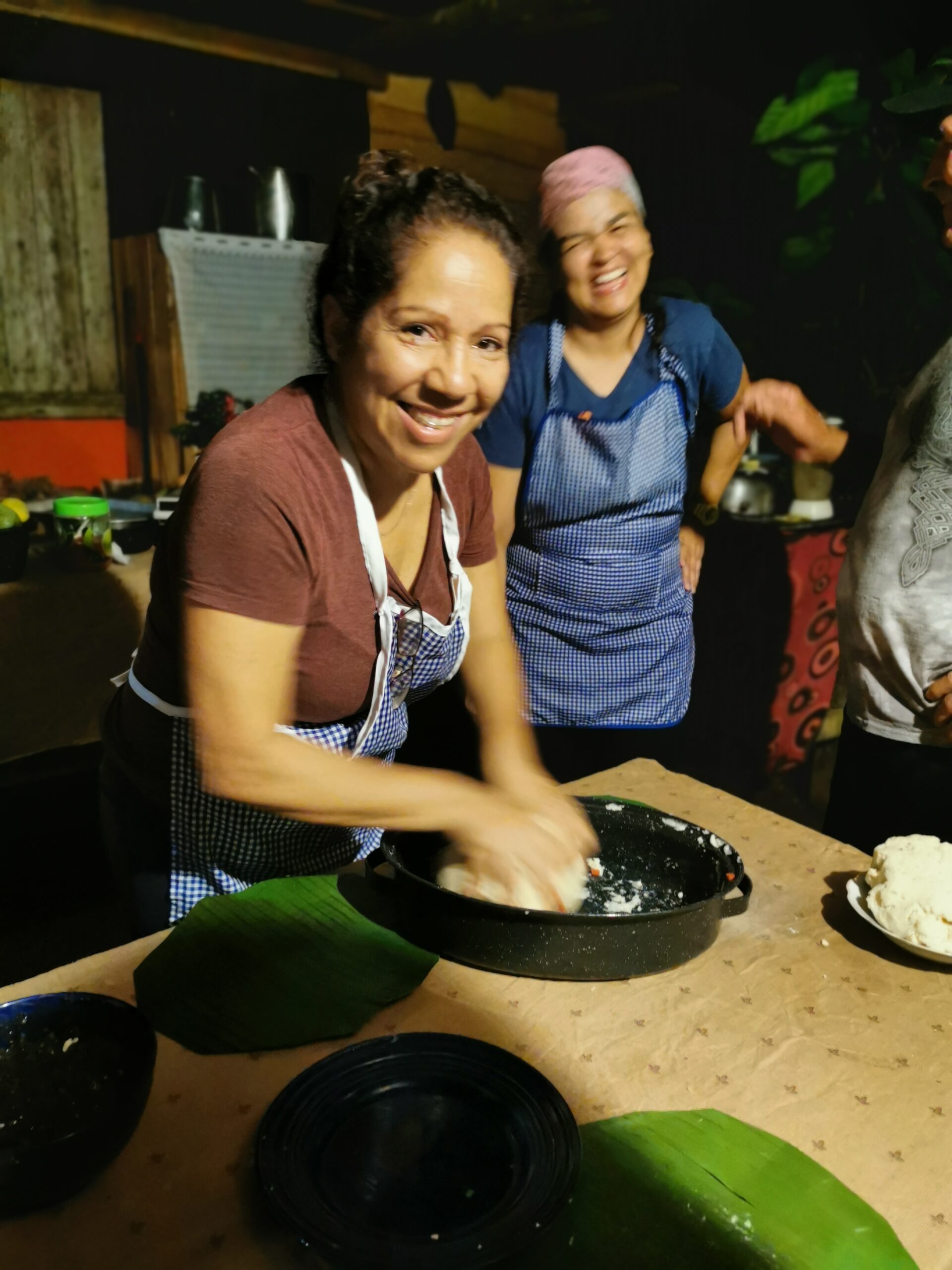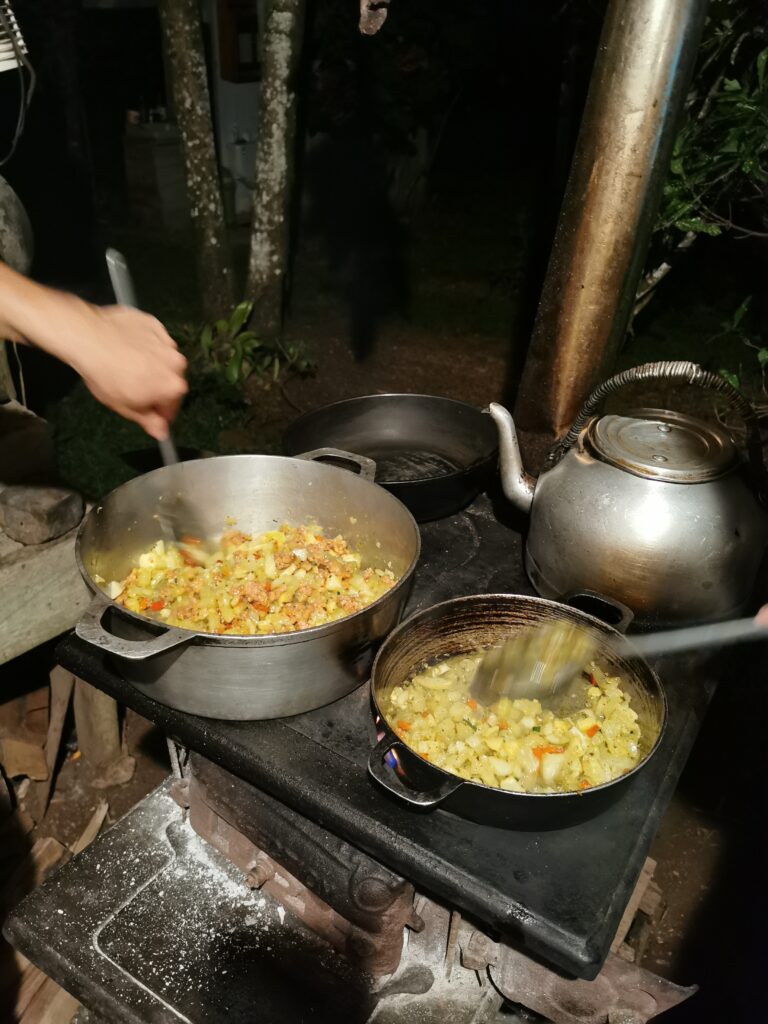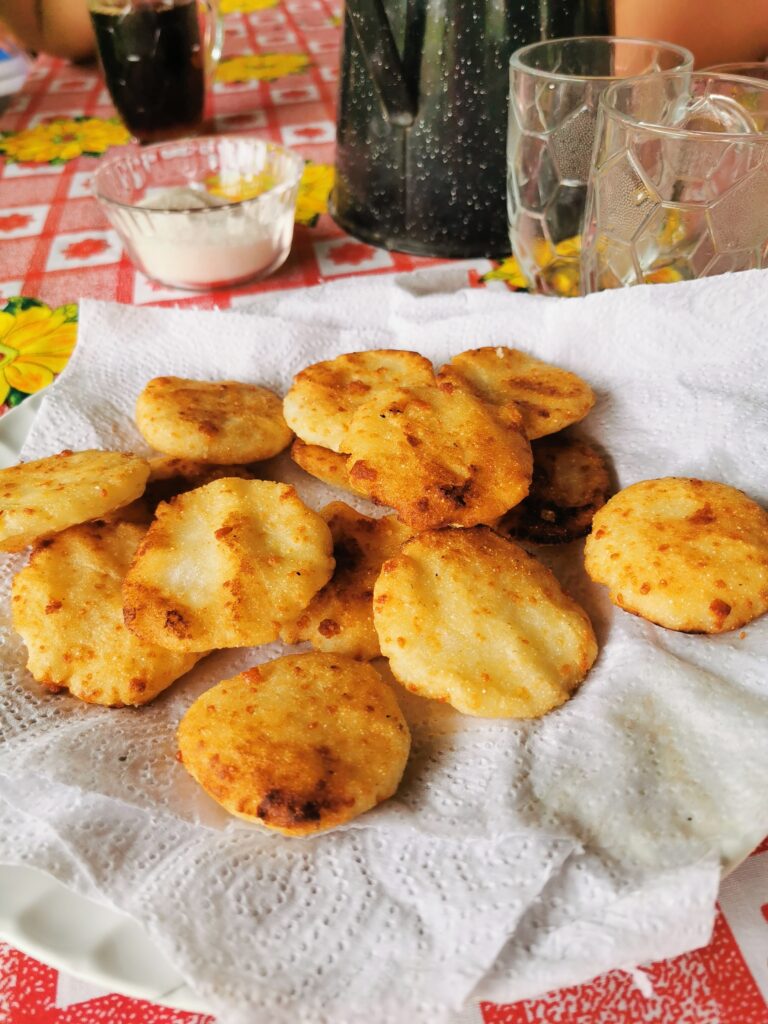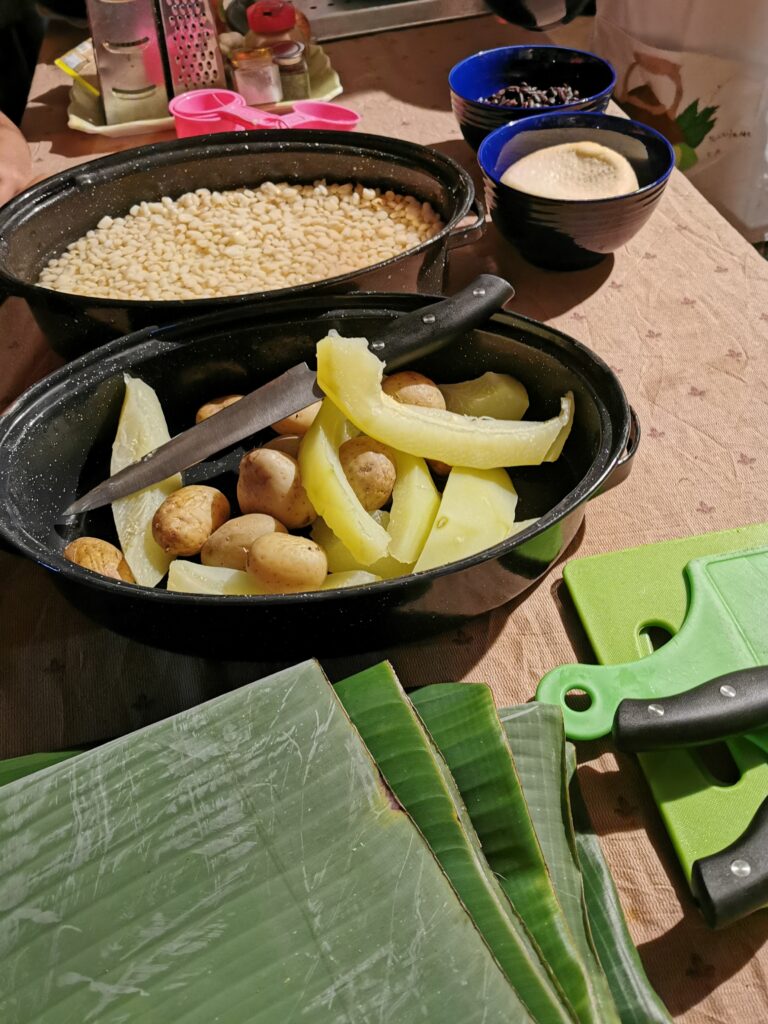What is it about Juanilama
- Autor: Marco Cañizales
- Category: Rural Experiences
- 05/13/2025
Twenty years ago, a Canadian woman came to stay in Juanilama for a few months. She fell in love with a local man, life eventually took them in different directions, but last year she returned—this time with her family—for her wedding to that same man. Today, she’s one of Juanilama’s own.




And hers isn’t the only story like this. Many tourists have tried to buy land here, dreaming of making Juanilama their home. It’s a humble place, with dirt roads and a forest that brushes the backyard of most houses. People come here thinking they’re going to help the locals, those who seem to have less. But when they leave, they realize the people of Juanilama actually have everything.
It’s those outsiders, returning to their busy city lives, who end up questioning their own way of living.
I’m sitting with the women who organize and manage rural tourism here. They laugh, sharing stories about how people want to move to this tiny village. I look at them seriously and ask the question they didn’t expect: What is it that Juanilama has?
They glance at each other, pondering it for a moment. A spark begins to pass from one to another until it lands on Yamileth’s lips. She smiles and says, What Juanilama has… is us.
And it’s true. Eli recalls how rural tourism has brought visibility and support to local schools, how these women have helped the community grow, how any seed that lands in Juanilama won’t be lost—because they’ll make sure it’s nurtured and thrives.
Juanilama is named after a native plant used in cooking and home remedies. It was so common in the area that the village’s founders chose the name when they settled here. Back then, 125 families received parcels of land for farming, and from the beginning, they agreed to preserve a forest for future generations.
These women have rooms in their homes ready to host visitors from all over the world. They’re organized into rotating crews, so each group knows which week it’s their turn to host and when it’s their turn to help. Everyone knows who’s best at teaching dance or cooking, where to go for a milking tour or to make paper using natural materials. There’s no competition—only a shared rhythm, a communal synergy. They know their skills, their roles, their strengths. But most of all, they know that their greatest strength has been working together.
After the interview, Karla takes us to photograph some of the houses used for guest stays. The system runs like clockwork—a WhatsApp group keeps everyone updated on our location. At each house, we’re welcomed at the door.
We finish at Elena’s house, Karla’s aunt. Her grandson, full of school-age curiosity, greets us. Melvin, Elena’s husband and the boy’s grandfather, turns off the TV to say hello. We sit in the living room and join them as bowls of homemade meatball and vegetable soup are served at the table.
We eat together—not as customers or guests, but as family.
We help clear the dishes, pitch in with the washing, then spend a few moments playing with the family’s dogs and cats. There are several, all used to this kind of life. Elena’s grandson explains the unique personality of each cat and tells us how every dog came to be part of the household.
Family photos line the walls. The house smells like home. Every kitchen in this village is big—designed or adapted to cook and share meals with visitors.
My room is waiting. The heat is strong, but a fan will get me through the night. The soaps are handmade by Doña Elena. I’ll only use one, but I secretly stash the others in my backpack. The next day I’ll confess my crime to her—and admit that, for some strange reason, they smell so good I almost wanted to eat them.
We plan to wake up early to join the milking tour before 7:00 a.m. Breakfast has to be quick—but it’s hard when the spread is so glorious: gallo pinto, ripe plantain, fresh yogurt, cheese made that very morning, coffee, sausage, eggs, oatmeal, and the list goes on.
After that kind of breakfast, all we want to do is nap. We solemnly swear to start a diet when we get home—but for now, we agree: if someone offers us more food, we’ll accept without hesitation.
Once again, the crews are activated. Every household knows we’re coming or just about to arrive. The simple floors shine, and smiles greet us from every doorway.
By the end of our visit, the question no longer matters.
Without a doubt, what Juanilama has—is its people.

